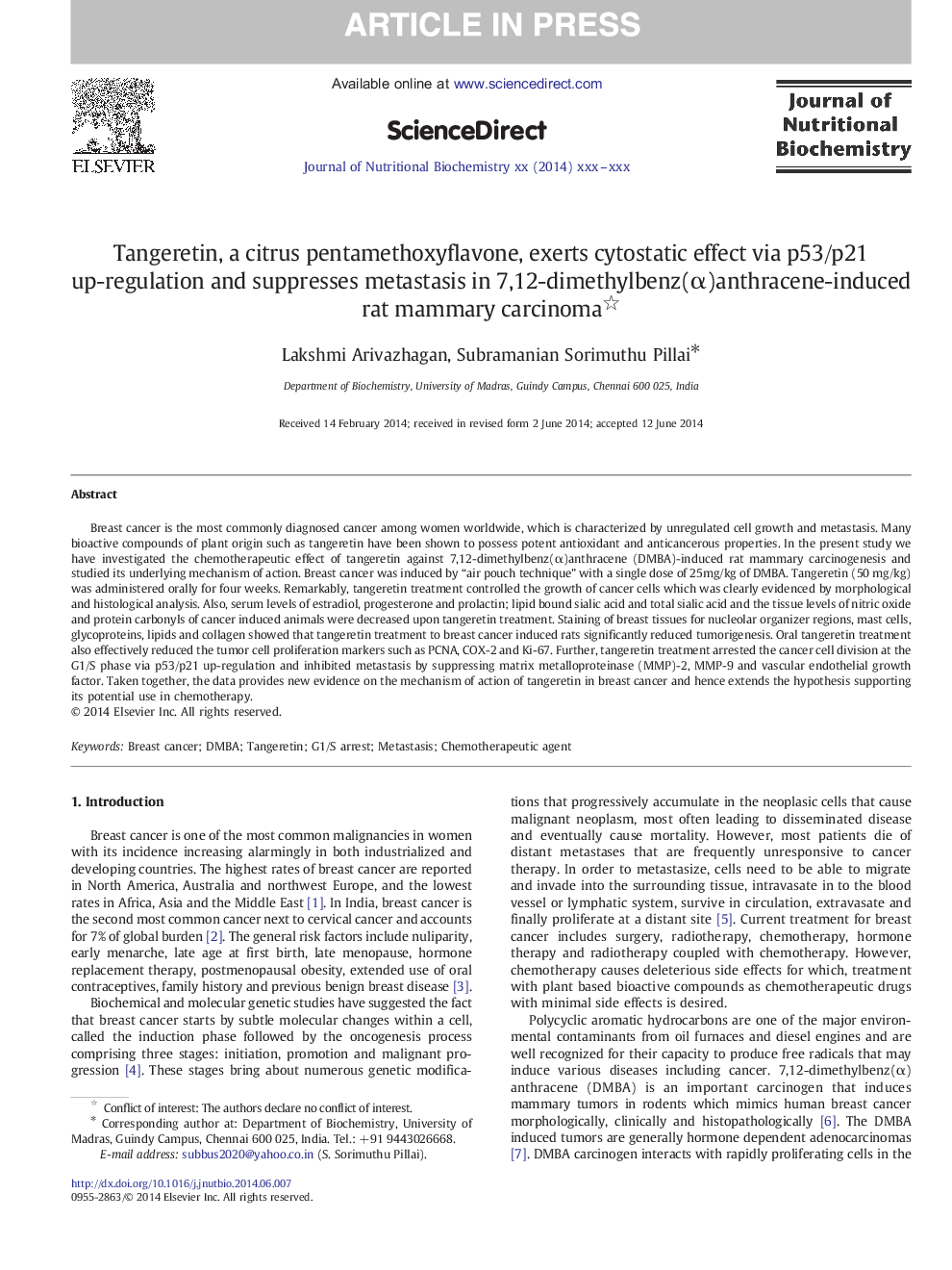| Article ID | Journal | Published Year | Pages | File Type |
|---|---|---|---|---|
| 8337054 | The Journal of Nutritional Biochemistry | 2014 | 14 Pages |
Abstract
Breast cancer is the most commonly diagnosed cancer among women worldwide, which is characterized by unregulated cell growth and metastasis. Many bioactive compounds of plant origin such as tangeretin have been shown to possess potent antioxidant and anticancerous properties. In the present study we have investigated the chemotherapeutic effect of tangeretin against 7,12-dimethylbenz(α)anthracene (DMBA)-induced rat mammary carcinogenesis and studied its underlying mechanism of action. Breast cancer was induced by “air pouch technique” with a single dose of 25mg/kg of DMBA. Tangeretin (50 mg/kg) was administered orally for four weeks. Remarkably, tangeretin treatment controlled the growth of cancer cells which was clearly evidenced by morphological and histological analysis. Also, serum levels of estradiol, progesterone and prolactin; lipid bound sialic acid and total sialic acid and the tissue levels of nitric oxide and protein carbonyls of cancer induced animals were decreased upon tangeretin treatment. Staining of breast tissues for nucleolar organizer regions, mast cells, glycoproteins, lipids and collagen showed that tangeretin treatment to breast cancer induced rats significantly reduced tumorigenesis. Oral tangeretin treatment also effectively reduced the tumor cell proliferation markers such as PCNA, COX-2 and Ki-67. Further, tangeretin treatment arrested the cancer cell division at the G1/S phase via p53/p21 up-regulation and inhibited metastasis by suppressing matrix metalloproteinase (MMP)-2, MMP-9 and vascular endothelial growth factor. Taken together, the data provides new evidence on the mechanism of action of tangeretin in breast cancer and hence extends the hypothesis supporting its potential use in chemotherapy.
Related Topics
Life Sciences
Biochemistry, Genetics and Molecular Biology
Biochemistry
Authors
Lakshmi Arivazhagan, Subramanian Sorimuthu Pillai,
